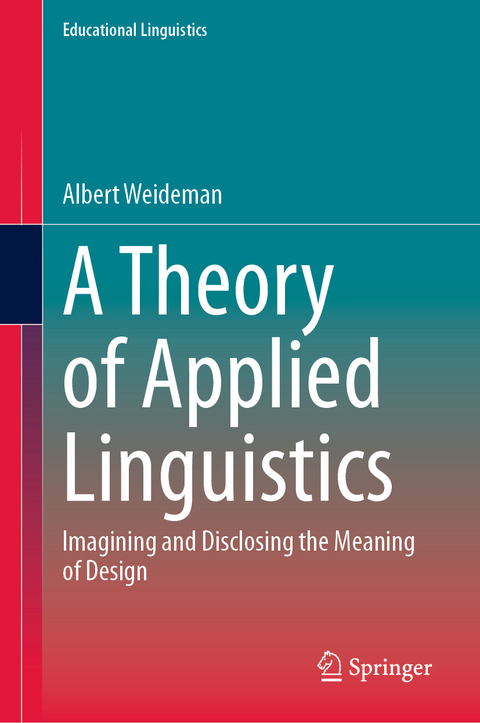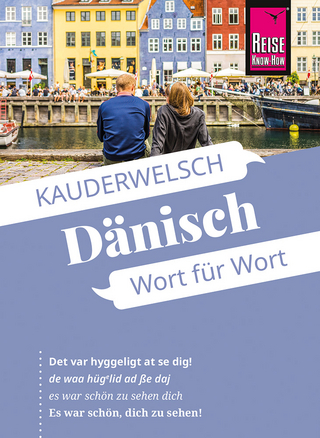
A Theory of Applied Linguistics
Springer International Publishing (Verlag)
978-3-031-67558-4 (ISBN)
This book adopts as conceptual focus the technical mode of experience, exploring this characteristic mode of design as the angle from which the discipline of applied linguistics takes its cue. What makes applied linguistic concept formation possible? A number of elementary concepts and ideas are so basic to the discipline that they can neither be ignored nor avoided. These 'primitives' are identified by examining the connections among the technical and other modalities, such as the spatial, the physical, the social, economic, aesthetic, juridical and the ethical. A theory of applied linguistics must be robust enough to do justice to different modernist and postmodernist paradigms operating in the discipline, systematically identifying and assessing their strengths and blind spots.
The book offers a response to the question of the usefulness of theory. The principles of design revealed in the theoretical analysis are given shape in developing imaginative language interventions to solve vexing language problems not for the sake of theory, but for the benefit of those affected.
The book is intended for use both as a reference and as a comprehensive, unifying perspective of what the field is, by scholars in applied linguistics and related fields (TESOL, ESL, ESP, EAP, SLA studies, language assessment and testing, language policy development), by postgraduate students or those who teach or study applied linguistics.
Albert Weideman is Professor of Applied Language Studies and Research Fellow at the University of the Free State. He is a rated researcher with the National Research Foundation in South Africa, has published more than ninety articles in accredited national as well as in international journals, and is the author of several books. These include Beyond expression: A systematic study of the foundations of linguistics (Van Schaik/Paideia Press 2009) and Responsible design in applied linguistics: Theory and practice (Springer, 2017). He was the main editor of Assessing academic literacy in a multilingual context: Transition and transformation (2021, Multilingual Matters), and co-editor of and contributor to Ethics and context in second language testing: Rethinking validity in theory and practice (Routledge, 2024). He has recently contributed chapters to Toegepaste taalkunde in Afrikaans (2022), to the third edition of Kontemporêre Afrikaanse taalkunde (2024; both from Van Schaik), and to a forthcoming volume in the Cambridge University Press series Studies in Language Testing (SILT) on Learning about assessing language: a matter of literacy or competency development? (Eds. B. Baker & L. Taylor).
His prime interests lie in developing a theory of applied linguistics and in analysing the philosophical foundations of the field. He is also an expert language tester. The tests he has designed or has helped to develop have been used in tertiary institutions in South Africa, Vietnam, Australia, Namibia, Singapore, Belgium and the Netherlands. He is the founder, former CEO and current chairperson of the Inter-institutional Centre for Language Development and Assessment (ICELDA), a formal partnership of three South African universities.
Chapter 1: Theorizing history: the design and preparation of language solutions.- Chapter 2: Process and plan: the five phases of applied linguistic designs.- Chapter 3: The nucleus of design: abstracting from artefact to modality. Chapter 4: Systematicity.- Chapter 5: Range and scope.- Chapter 6: Consistency.- Chapter 7: Adequacy.- Chapter 8: Differentiation.- Chapter 9: Intuitive appeal.- Chapter 10: Theoretical defensibility.- Chapter 11: Meaningfulness.- Chapter 12: Accessibility.- Chapter 13: Utility.- Chapter 14: Alignment.- Chapter 15: Accountability.- Chapter 16: Care, compassion and respect.- Chapter 17: Trustworthiness.
| Erscheinungsdatum | 22.08.2024 |
|---|---|
| Reihe/Serie | Educational Linguistics |
| Zusatzinfo | XXIII, 302 p. 32 illus., 11 illus. in color. |
| Verlagsort | Cham |
| Sprache | englisch |
| Maße | 155 x 235 mm |
| Themenwelt | Geisteswissenschaften ► Sprach- / Literaturwissenschaft ► Sprachwissenschaft |
| Sozialwissenschaften ► Pädagogik | |
| Schlagworte | construct validity • Design Phases • design principles • face validity • interpretation and access • Language assessment • Language Policy • Language testing • theory of applied linguistics |
| ISBN-10 | 3-031-67558-4 / 3031675584 |
| ISBN-13 | 978-3-031-67558-4 / 9783031675584 |
| Zustand | Neuware |
| Informationen gemäß Produktsicherheitsverordnung (GPSR) | |
| Haben Sie eine Frage zum Produkt? |
aus dem Bereich


